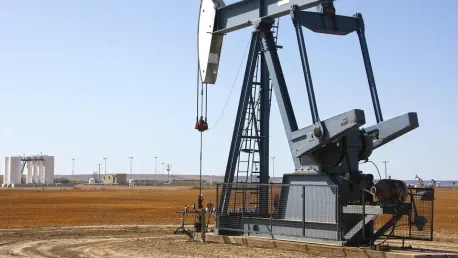In a significant development affecting global oil markets, Brent crude oil prices have plummeted to $71.93 per barrel for the first time since early October, driven by easing tensions in the Middle East between Israel and Iran. This decline is particularly notable when considering that oil prices stood at $76 per barrel just this past Friday, representing a dramatic decrease of over 5%. While the current prices are the lowest seen in almost two years, it’s anticipated that the reduced cost of crude will result in lower prices at the pump for gasoline and diesel, though this effect might not be felt for another 10 days.
The primary catalyst for this decline in oil prices is the perceived decrease in the likelihood of an escalation in the conflict between Israel and Iran. Despite both countries engaging in missile exchanges, recent diplomatic gestures and military restraint have contributed to calming market fears. Notably, Israeli airstrikes over the weekend were carefully executed to avoid targeting Iranian energy facilities, thereby reassuring market participants. Additionally, a non-threatening speech by Iran’s supreme leader, Ayatollah Ali Khamenei, on Saturday further contributed to easing tensions and stabilizing market sentiment.
Adding to this are Israeli military actions, which have largely focused on Hezbollah leadership in response to heightened conflict since September. While there have been retaliatory actions, the possibility of the conflict spreading beyond Gaza and Lebanon appears to have diminished. Israel’s approach, highlighted by selective acknowledgment of certain attacks and the exclusion of the assassination of a Hamas leader in Tehran, underscores a tactically measured response designed to avoid wide-scale escalation.
The implications of a lower oil price extend beyond just the immediate cost of fuel, given fossil fuels’ crucial role in numerous production processes. Therefore, a sustained drop in oil prices could have a broader impact on global price trends, potentially curbing inflationary pressures. The overall sentiment in the market is cautiously optimistic, buoyed by the convergence of military restraint and diplomatic signals that point toward de-escalation, helping to maintain stability in the energy sector.









